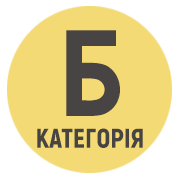АФГАНСЬКА КРИЗА (1980–1991) В ДІЯЛЬНОСТІ ООН: ДЖЕРЕЛЬНА БАЗА ДОСЛІДЖЕННЯ
DOI:
https://doi.org/10.32782/cusu-hist-2024-1-1Ключові слова:
Афганістан, Генеральна Асамблея ООН, Рада Безпеки ООН, СРСРАнотація
На підставі вивчення численних джерел, зокрема документів ООН, стенограм, протоколів засідань і рішень Політбюро ЦК КПРС, стенограм зустрічей і перемовин радянських керманичів і посадовців з афганськими політиками, виступів, промов, інтерв’ю радянських і афганських державних і військових діячів, мемуарів учасників і сучасників подій, досліджується роль ООН у врегулювання афганської кризи впродовж 1980–1991 рр. Авторка аналізує широкий спектр документів ООН, більшість з яких належать до колекції бібліотеки ім. Даґа Хаммаршельда: журнали засідань Ради Безпеки ООН, тексти резолюції РБ ООН, стенограми засідань Генеральної Асамблеї ООН, тексти резолюцій ГА ООН, звіти і доповіді Генерального секретаря ООН про ситуацію в Афганістані та спроби врегулювання конфлікту. Ця група джерел демонструє реакцію світової спільноти на радянське вторгнення в Афганістан, діяльність Ради Безпеки ООН і Генеральної Асамблеї ООН щодо врегулювання проблеми, етапи Женевського переговорного процесу (1982–1988 рр.). Досліджуються протоколи засідань і рішень Політбюро ЦК КПРС, які висвітлюють процес прийняття рішення про початок збройної інтервенції в Демократичну республіку Афганістан, засади пропагандистського супроводження вторгнення, еволюцію поглядів радянського керівництва на політику СРСР в Афганістані. Вивчаються стенограми зустрічей і перемовин радянських керманичів і посадовців з афганськими політиками, які містять чіткі настанови, інструкції щодо поведінки афганських дипломатів на засіданнях Ради Безпеки ООН і Генеральної Асамблеї ООН та під час афгансько-пакистанських переговорів. Ця група джерел засвідчила повну відсутність в Афганістані самостійної зовнішньої політики впродовж 1980-х рр. Аналізуються виступи, промови, інтерв’ю радянських і афганських державних і військових діячів, які передусім містили обґрунтування «введення» військ СРСР в Афганістан (необхідність захисту здобутків Квітневої революції, відбиття зовнішньої загрози, численні прохання афганського керівництва; відповідність афганської політики Кремля статті 51 Статуту ООН і договірним зобов’язанням між СРСР і Афганістаном), а також численні звинувачення на адресу США в небажанні врегулювання ситуації навколо Афганістану. Досліджуються мемуари учасників і сучасників подій, зокрема спогади спеціального представника Генерального секретаря Д. Кордовеса і Е. Шеварнадзе – міністра закордонних справ СРСР. Ця група джерел суттєво розширила джерельну базу дослідження, дала можливість краще зрозуміти дух епохи.
Посилання
Ковальков О. Л. 2021. СРСР в Афганістані (1978–1991 рр.): остання спроба експорту соціалізму. Харків
Костыря А. В., 2009. Историография, источниковедения, библиография спецоперации СССР в Афганистане (1979–1989) гг. Донецк.
Рабуш Т. В., 2018. «Афганский вопрос» в 1980-е годы и резолюции ООН. Архангельск.
Черняев А. С. 1993. Шесть лет с Горбачевым: По дневниковым записям. М.
Шеварднадзе Э. А. 1991. Мой выбор. В защиту демократии и свободы. М.
Шеварднадзе Э. А. 2009. Когда рухнул железный занавес: встречи и воспоминания. М.
Cordovez D., 1995. Harrison S. S. Out of Afghanistan. The Inside Story of the Soviet Withdrawal. New York.








